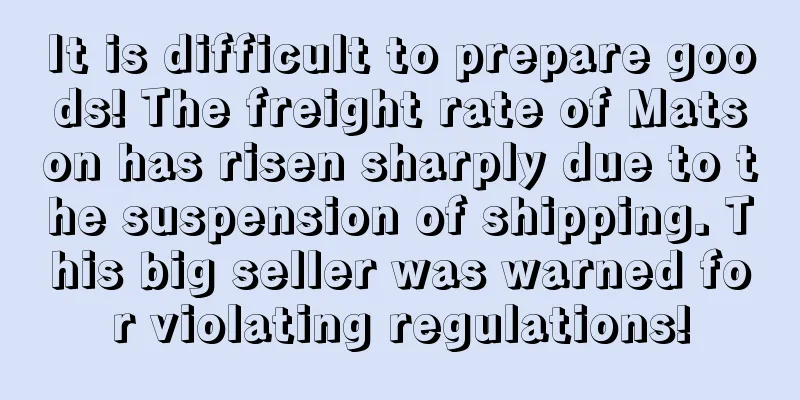Amazon sellers use dirty tricks, and Temu sellers are the biggest victims?

|
The genius seller used a dirty trick and went to Temu to purchase goods? I don’t know who came up with this idea, but these days a new strategy full of malice towards Temu sellers has been circulating among Amazon sellers: purchase goods on the Temu platform as the source of goods, and then simply refund the goods when they arrive at the overseas warehouse, truly realizing zero cost for doing business. This move is really crazy and cruel to Tume sellers. But in order to avenge the DP day traffic competition, the attitudes of other sellers and onlookers are: “It’s a bit cruel, but I support it.” “Ask my friend in the overseas warehouse to give it a try.” “Just don’t buy mine (smiley face).”
Temu's various internal operations have already angered other platforms, and it is also holding a membership day on Amazon PD to grab traffic. If you continue to be competitive, don't blame other platforms for taking ruthless actions. It's just a battle between two parties, and the only ones who will suffer in the end are Temu's sellers. 02 Temu is doing charity, but the people who pay the money are the sellers on the platform? The sellers on the Temu platform who heard about this conspiracy might write a big "miserable" on the ground: It was Temu that wanted to involution, not me, so why am I always the unlucky one? Being hostile to external platforms is fine, but sellers on their own platforms have a hard time getting any benefits. They are not liked by anyone inside and outside, and they are also attacked from all sides in business transactions, isolated and helpless. As the overseas version of Pinduoduo, Temu's low prices and subsidies have always been obvious to all. Many Temu sellers themselves have complained: this is not a business, but charity. "Every time I open the Temu platform, there are price reduction suggestions. Today it was even more eye-catching. Four price reductions were made to more than 1 yuan. Please return them to me quickly. Wouldn't it be better to switch to another platform?" "Don't say anything, just donate 0 yuan to charity, and be recognized as a cross-border philanthropist." "Are you the overseas version of Pinduoduo? Are you the overseas version of 1688? If you are so good at lowering the price, why don't you let me give it away for free?"
This strategy can be said to illuminate itself at the expense of everyone else. Sellers on Temu’s own platform complained, and other platforms were also deeply affected by it and passively involved in the battle for price and traffic. The platform sellers are even worse off. Not only are they repeatedly "suggested to lower prices" to take advantage of them, but they are also attacked by sellers on other platforms. At the same time, when the business environment changes and Temu is targeted, the sellers are the first to be affected. 03 New regulations are introduced, and Amazon platform also joins the battle This year, Temu has been conquering the cross-border e-commerce industry, leaving nothing untouched wherever it goes. Amazon has been deeply troubled by it and has also begun to adopt strategies to fight back. As the saying goes, if you can't beat them, join them. The new tactics Amazon introduced this year are all inspired by Temu. 01 Discount subsidy program Some time ago, Amazon launched a subsidy program, and many products were automatically given a 20% discount code. Amazon said it was an official subsidy and would not charge sellers any fees. This model is similar to Pinduoduo's 10 billion yuan subsidy. In order to seize the market, Amazon also started a price war. 02 Cancel small and light products Just recently, Amazon announced that starting from July 17, all products on Amazon US will no longer be registered for the Small and Light Program. Starting from August 29, Amazon will cancel the Small and Light Program and introduce lower FBA rates for all products priced below $10. In addition, the delivery fee for products below $10 is lower than before, and there is no need to pay the holiday peak delivery fee. Many people speculate that the purpose of reducing shipping costs and guiding sellers to make low-unit-price products is to counter Remu's low-price strategy. 03 Front-end displays sales data This year, Amazon began to release data. In March, the sales volume of some products was made public on the front page, and in April, the number of product views also began to appear on the front page. Data visibility not only facilitates sellers to improve sales strategies, but also intensifies the intensity of internal competition and price wars. Once the price war starts, it can't be stopped. Amazon platform launched a series of preferential policies, and Temu could only follow suit. Temu said: I don't have much business sense, but if you talk about price reduction, then I won't be tired. An American merchant wanted to buy a car USB HUB. He searched Amazon and found a non-branded product for $69. He then searched Temu again and found the same product at a price nearly 4 times lower, only $18 (with a 30% discount). There are countless examples like this. A pair of socks that sells for $8 on Amazon sells for $1.9 on Temu. Fitness equipment that sells for $20 on Amazon only costs $5 on Temu. Some even steal product images from Amazon and sell them on Temu at a different price, and their sales are even better than the original ones. "Who stole my rich second-generation life? Temu, spit it out!" "Temu sellers should come to Amazon. Overall, Amazon has higher traffic and higher profits, which is good for everyone." "I know Temu's scary ghost story. He sold 400,000 orders and made a profit of 7,000 yuan. He didn't do anything for the sake of being a philanthropist." 04 Surrounded by enemies, Temu sellers are the unlucky ones When platforms fight, sellers suffer. Amazon’s various support policies are officially given and sellers do not need to bear the cost, but Temu’s wool is actually borne by sellers. Not only do they push prices to the lowest, but they also have to worry about buyers always returning their money for “zero-dollar purchases.” The platform’s original promise of no logistics costs was not fulfilled, and sellers need to share the shipping costs of the products with the platform. Moreover, as individual merchants under a large platform, sellers also have to bear the risk of changes in the overall environment. Whether it is their own platform that changes new rules or other platforms that take the lead in suppressing them, sellers are the pawns that bear the brunt. Not to mention the jokes from Amazon sellers this time about the bad taste of packaging Temu platform products for sale, which also shifted the complaints about the Temu platform to the merchants. Temu is still in its infancy. Although it has grown rapidly, it has also been pouring money into it and is still losing money. Most of the sellers who can make it with Temu are big sellers who can afford this little money and have the patience to wait for the platform to develop. If you are a medium or small seller who really wants to start from scratch and make more money through hard work, then the best strategy is: walk away quickly. |
<<: Amazon’s advertising team reaches out to sellers
>>: Amazon’s new advertising rules make it a great idea to pick up bargains!
Recommend
What is SILULINK? SILULINK Review
SILULINK is a cross-border e-commerce agency brand...
Walmart releases 2022 advertising business plan! Aims to become one of the top ten advertising platforms in the United States
It is learned that recently, Walmart outlined its ...
Shopify and X reach new cooperation to help merchants promote products on social networks
According to foreign media reports, social media g...
Walmart completely removes GMV threshold, Walmart+ membership surges by 20%
According to PYMNTS data, in 2022, about 182 milli...
The distribution operation did not wait until the resumption of work, and the entire company was gone...
Preface of the Little Clone: This week we resumed...
Review of the competition between Amazon and Walmart in 2022! Who will be the final winner?
It is learned that on December 21, PYMNTS reviewed...
What is Sellerlegend? Sellerlegend Review
Sellerlegend is a tool that allows you to visualiz...
Oops! Something happened at the Amazon warehouse!
Amazon sellers have been suffering a lot recently....
This is a new plan, Amazon copycats can be reported!
Recently, an innovative strategy to deal with copy...
Sellers are fighting to protect their profits in the low-price vicious circle
People often choose to give up the best cooperati...
Best Buy plans to launch new third-party marketplace in the U.S. this summer
It is learned that on January 14, according to for...
How to get high product ranking on Amazon
In the ever-evolving e-commerce landscape, getting...
US e-commerce platform ranking forecast! Small players will continue to rise in status
It is learned that according to eMarketer's fo...
FBA warehouse shipments were confiscated! Be careful when selling these products
News about an FBA warehouse broke out these two da...
BRS union rejects temporary contract! US rail strike risks re-emerge!
<span data-docs-delta="[[20,"获悉,据外媒报道,10月2...









